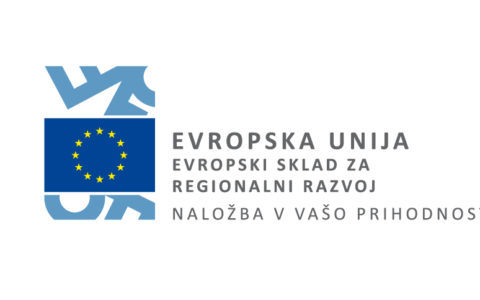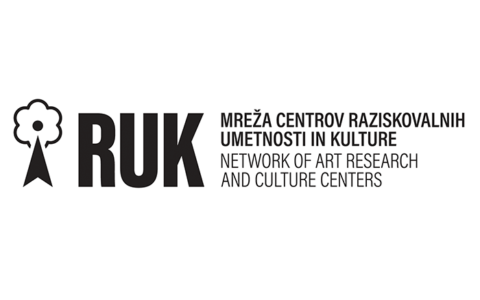FESTIVAL IZIS
IZIS X: UVOD
Jubilejna deseta izdaja Izisa si za osnovni element jemlje cev, tisto nekaj podolgovatega in votlega, ki navadno na skritem skrbi za vsakršne dovode in odvode, ki bodisi v drobovjih naših bivališč in mest bodisi v naših telesih skrbi za to, da naša življenja kar se da gladko tečejo. Če bi moral v kar najbolj strnjeni obliki artikulirati misel, ki je že dolgo preganjala kuratorja Marka Vivodo in ga vodila pri snovanju letošnjega programa, bi tvegal in uporabil tole definicijo: »skrivanje procesa v rezultatu« (Krašovec, Tujost kapitala); in bi se zato razkrivanja lotil na točki, kjer se rezultat ne izide.
Londonski opečnati kanalizacijski sistem iz 19. st. odplakam ne omogoča gladkega toka, skozenj se vijejo s turbulencami, kar znatno povečuje strjevanje zmesi maščob, olj in masti z nerazkrojljivimi odplakami. Dolgo časa neopažene, a vse bolj pogoste maščobne gore so se začele množiti in ga mašiti. Morda najbolj slavna med njimi, Whitechapelska maščobna gora, je bila odkrita leta 2017, dolga za dobre tri Libertase in težka 130 ton. Delček te pošasti je kasneje našel mesto v Londonskem muzeju in nastopal kot glavni promotor ozaveščevalne kampanje Don’t Feed the Monster! In da bi bil gnus, ki je spremljal učinkovitost le-te, še večji, naj zadostuje dejstvo, da je bil temu »kot beton trdemu« materialu glavni gradnik raznovrstni sanitetni material, med katerim so z naskokom prevladovali vlažilni robčki. Nekaj, kar nas v najkrajšem času očisti, osveži in naredi zapeljive ali pa vsaj na videz primerne za interakcijo s svetom ali s samimi sabo, je bila hrana za orjaške pošasti, o katerih je vse več poročil tako v Veliki Britaniji kot drugod. Ena izmed značilnosti pošasti je seveda ta, da nas ujame nepripravljene in da nas preseneti, druga pa, da se nanjo takoj nalepijo poskusi razlage, ki bi jo vsaj količkaj udomačile. In v primeru maščobnih gor je bilo seveda priročno takojšnje pozivanje k odgovornejšemu ravnanju na eni strani in kritika potrošništva na drugi, oboje, kakopak, z moralizirajočim podtonom.
Odgovorno potrošništvo vse bolj nastopa kot merilo moralnega delovanja. Kot tako je seveda dosti bolj odvisno od denarnih zmožnosti kot od moralnega čuta posameznika. Ne glede na procese, ki ga ženejo, pa bi najbrž zadostovalo za uspešen spopad z whitechapelski podobnimi pošastmi. V lani izdani Tujosti kapitala pa si Primož Krašovec zada pokazati, kako so tovrstni pozivi z ozirom na delovanje kapitala danes prekratki. Saj to, da »za hrbtom čutimo nekaj neznosno, pošastno tujega«, pomeni, da »kapital ni tuj (le) kot nezavedna ali nepredvidena razsežnost človeškega delovanja, ampak kot dodatni akter /…/«.
Sodobni finančni mehanizmi vse bolj stavijo na visokofrekvenčno algoritmično trgovanje, kjer ne gre več za trgovanjem s premoženjem v kakršnikoli obliki, temveč za stave na donosnost in tveganost določenih tokov denarja. Kar seveda ne pomeni, da kapital ni več vezan tudi na klasične oblike denarja, različne oblike eksploatacije, trgovino in potrošnjo, ampak da se njegovo asimiliranje in parazitiranje na obstoječih načinih družbene organizacije dela nezadržno končuje in da vse bolj pospešeno »deluje kot avtonomna, samoreplicirajoča in samorazširjajoča se visokotehnološka produkcija«. Denarni tokovi pod prisilnim zakonom konkurence izbirajo poti, kjer je tok prost in gladek, pozitiven rezultat pa bolj verjeten. Investiranje v tehnološke inovacije se tako kaže za precej bolj smotrno in racionalno, predvsem pa neskončno, za razliko od omejene človeške biološke konstitucije. Že danes je tako »vloga denarja kot menjalnega sredstva relativno nepomembna in obstranska, trgovina pa obsega le približno 0,5 odstotka letnega prometa na finančnih trgih«. Na tem mestu se kaže tujost kapitala, ki postaja vse bolj indiferenten do produkcijskih procesov, vezanih na človeške akterje, pozivi k odgovornemu potrošništvu pa jalovi v svojem tako omejenem dometu. Z ozirom na opisane procese pa teza, ki jo Krašovec zagovarja, ni več tako presenetljiva, ko pravi, da je: »problem 21. stoletja odvečnost človeštva s perspektive kapitala, ki se izraža tako v socialnem opustošenju (skrajna revščina več kot milijarde prebivalcev revnih predmestij) kot v pobeglem delovanju kapitala samega (avtomatizacija industrije, finančni boti in preboji na področju umetne inteligence)«. To rezultira v tem, da je naša vpetost v denarne tokove, ki delujejo vse bolj neodvisno in avtomatizirano, vse manj garant tega, čemur se je včasih reklo zaposlitev, in vse bolj garant notranjega boja na ravni posameznika – tega, da mora ostajati vpet in se s tem izogniti svoji odvečnosti, in težnjo po samoohranitvi, kar vzbuja nenehen in neizogiben občutek krivde. Za odvajanje le-tega so nam vselej na voljo naprave, ki nas preko tako imenovanih feedov hranijo v procesu, v katerem »ne sodelujemo kot subjekti, temveč kot viri tokov podatkov«. V zameno za našo pozornost in hranjenje algoritmov dobimo hipne, visoko-ločljive podobe, ki simultano nastopajo kot direktni šusi »čutno-afektivnega doživljanja«, ki nas zagrabi na infrasubjektivni ravni. Tujost kapitala se tako sklene z resignirajočim tonom brezizhodnosti, ki ga »zaznamuje prepričanje, da je realnost v procesu radikalne preobrazbe, ki poskuse, da bi jo diskurzivno zapopadli, obsoja na neuspeh«. Ampak »če so reklame postale nekoliko bolj flashy, teoriji zato morda še ni treba pritisniti gumb za samouničenje«. (Ivan Kobe v kritiki, objavljeni na Radiu študent)
Ravno v točki, kjer se tujost kapitala sreča z afekti, je mogoče najti izhod iz brezizhodnosti, v katero nas potisne, in nanjo nasloviti kritiko. Ne da bi omilili ostrino teze o odvečnosti človeštva, bi veljalo njeno pravilnost preveriti sledeč sloganu Don’t feed the Monster, v kolikor kot človeški akterji nastopamo kot vir tokov podatkov, ki hranijo algoritme. Če kapital postaja indiferenten, potem lahko z vso resnostjo storimo vsaj to, da mi z njim ravnamo enako. Za kar obstaja še bolj kompleksen razlog, ki bi ga bilo moč ilustrirati s preprosto primerjavo. Nedvomno je sladkor vir energije, ki vzbuja znatno večje količine ugodja, kot pa na primer žvečenje zelenjave, a se zaradi tega še ne bomo objestno predajali zavestnemu zastrupljanju. Povsem enako lahko rečemo o ravni afektov, ki jih producirajo današnje nove tehnologije v sicer uspešnem pitanju naših strasti, dokler jih ne prepoznamo kot odvečne in škodljive, ker ne naslavljajo, ne nahranijo naše človeške omejenosti na način, da iz afektov ustvarimo čustva, ki jih je moč ob čutni vzdraženosti tudi diskurzivno razumeti, in ki predstavljajo tisto vez sobivanja, ki nas še drži v intersubjektivnih odnosih. V naslednjem koraku pa lahko tudi mimo moraliziranja in s pripoznanjem dejstva, da kapital parazitira na ostankih družbene organizacije dela, sami parazitiramo na njem in ga do določene mere sabotiramo. Predvsem v točki, v kateri si je mogoče priznati srečno naključje, da nam nič zares ne manjka, obstaja prostor, kjer bi nemara bilo treba priznati odvečnost velike večine dobrin, za katere se tako pehamo. In če vse to ni dovolj, se je morda treba vprašati o prepletenosti in pogojenosti snovne infrastrukture, ki skrbi za nesnovne izmenjave oziroma, ponovno, kateri proces se skriva v rezultatu vseh brezstičnih povezav, brez katerih tudi tujost kapitala ostane nefunkcionalna. Če gre verjeti člankom, ki povzemajo raziskave in sledijo metodologijam preračunavanja ogljičnega odtisa naših naprav, interneta in sistema, ki podpira njegovo delovanje, pridemo do številke 3,7 % letnih toplogrednih izpustov, kar je primerljivo z bilanco letalske industrije. Pri čemer zadnje ocene navajajo, da internet uporablja 53 % človeštva. V naših realnih stiskah bi lahko morda bili malo bolj ogorčeni nad tem, kako zelo prelomljena je obljuba, da je digitalni svet sredstvo za dostopanje do neskončnega vira informacij. Obljuba je bila degradirana na brezobziren boj za našo pozornost in to vse bolj postaja njegov edini cilj.
Če kaj, si umetnost od nekdaj prisvaja tehnologijo kot sredstvo, česar ne moremo trditi za veliko večino drugih človeških dejavnosti. Osebna želja ob deseti obletnici bi zato bila, naj Izis parazitira na denarnih tokovih, ki ga pojijo bolj kot na izgorelosti posameznikov, ki ga poganjajo. Še smo tu, poji nas neko »skrivnostno okrožje izparin« (Nietzsche) in se pehamo za to, da bi svoj čas in pozornost namenili Izis, boginji, v svoji nedoumljivosti morda zelo podobni tujosti kapitala, a veliko bolj resnični. Mi smo proces, ki se ne skriva – cev, ki je piščal.
– Karlo Hmeljak
IZIS X: INTRODUCTION
The tenth-anniversary edition of Izis takes as its basic element the pipe, that elongated and hollow thing that usually secretly takes care of all the inflows and outflows, which ensures that our lives run as smoothly as possible in the bowels of our dwellings and cities or in our bodies. If I had to formulate the idea that has long haunted curator Marko Vivoda and guided him in the conception of this year’s programme in the most concise way possible, I would go out on a limb with this definition: “the hiding of the process in the result.” (Krašovec, Alien Capital); and so begin the process of disclosure at the point where the results do not add up.
London’s 19th-century brick sewer system does not provide an unobstructed flow for sewage, which meanders turbulently through the system, greatly increasing the solidification of the mixture of fats, oils and grease with the insoluble wastes. Long unnoticed, but increasingly common, fatbergs have begun to multiply and clog the system. Perhaps the most famous of these, the Whitechapel Fatberg, was discovered in 2017. It was three Libertas warehouses long and weighed 130 tonnes. A piece of this behemoth later found a place in the Museum of London and served as the main promoter of the awareness campaign Do not Feed the Monster! To add to the disgust that made the campaign so effective: the main components of this “concrete-hard” material were various hygiene products, with wet wipes dominating by a wide margin. Something that is supposed to cleanse, refresh and make us seductive, or at least seemingly fit to interact with the world at a moment’s notice, was the fodder for the giant monsters that were increasingly reported in the United Kingdom and elsewhere. One of the monster’s characteristics is that it takes us by surprise, and another is that it is immediately associated with attempts to explain it in a way that at least somewhat domesticates it. In the case of the Fatbergs, it was particularly convenient to immediately call for more responsible behaviour on the one hand and to criticise consumerism on the other, both with moralising undertones, of course.
Responsible consumption is increasingly emerging as a benchmark for moral action. As such, it is naturally much more dependent on the financial capacity than on the moral sense of the individual. And yet, to disregard the processes that drive it, it would probably be sufficient to successfully counter the Whitechapel-like monsters However, in his book Alien Capital, published last year, Primož Krašovec argues that such appeals are too fleeting in relation to the workings of contemporary capital. The fact that “we feel something unbearably, monstrously alien at our backs” means that “capital is alien not (only) as an unconscious or unforeseen dimension of human activity, but as an additional actor /…/: alien.”
Modern financial mechanisms increasingly rely on high-frequency algorithmic trading, which is no longer about trading assets in any form, but about betting on the profitability and risk of particular money flows. This is not to say that capital is no longer tied to traditional forms of money, various forms of exploitation, trade, and consumption, but that its assimilation and parasitisation of existing forms of the social organisation of labour is coming to an end, and that it is increasingly “acting as an autonomous, self-replicating, and self-expanding high-tech mode of production”. Under the coercive law of competition, money flows take paths that are free and frictionless, and where a positive outcome is more likely. Investment in technological innovation thus proves to be much more sensible and rational and, above all, infinite, unlike investment in the limited biological constitution of humans. Already today, “the role of money as a medium of exchange is relatively insignificant and marginal, and trade accounts for only about 0.5 percent of annual turnover in financial markets”. Here we can clearly see the alienness of capital, which is increasingly indifferent to production processes tied to human actors so that the demand for responsible consumption becomes futile in its limited scope. In the light of the processes described, the thesis put forward by Krašovec is not so surprising when he states that: “The problem of the 21st century is that humanity is redundant from the perspective of capital, expressed both in social devastation (the extreme poverty of more than a billion slum dwellers) and in the unrestrained activity of capital itself (the automation of industry, the financial boom, and the breakthroughs in artificial intelligence).” Our involvement in the flows of money, which are becoming more and more independent and automated, is less and less a guarantor of what used to be called employment, and more and more a guarantor of internal struggle at the individual level. The need to contribute in order not to become redundant and the tendency to self-preservation lead to a constant and inescapable feeling of guilt. To alleviate it, we have devices that constantly fatten us up via so-called feeds at our disposal, while “we participate in this process not as subjects, but as sources of data streams.” In exchange for our attention and the nourishing of algorithms, we receive instantaneous images of high resolution that simultaneously act as direct shocks of “sensory-affective experience” that seize us on an infrasubjective level. Alien Capital thus concludes with a resigned tone of hopelessness, “marked by the conviction that reality is undergoing a radical transformation will condemn all attempts to engage with it discursively to failure.” But “even if the commercials have become a bit flashier, perhaps theory does not have to press the self-destruct button just yet.” (Ivan Kobe in a review published on Radio Študent)
It is precisely at the point where the alienness of capital meets the effects that it is possible to find a way out of the limbo into which we have been plunged and to begin to formulate our critique. Without diminishing the harshness of the thesis of the redundancy of the human being, it is worth examining its plausibility by following the slogan Don’t feed the Monster, insofar as we, as human actors, are the source of the data streams that feed the algorithms. If capital is becoming indifferent, then the least we can do, in all seriousness, is to become indifferent to it ourselves. There is an even more complex reason for this, which can be illustrated by a simple comparison. Sugar is undoubtedly an energy source that gives much more pleasure than, for example, chewing vegetables, but that does not mean that we will consciously poison ourselves. The same is true of the effects that new technologies generate in the otherwise successful fattening of our passions until we recognise them as superfluous and harmful because they do not address our human limitations and do not nourish us in ways that would transform effects into emotions that could be discursively understood in the face of sensory arousal and that constitute the bond of coexistence that still holds us in intersubjective relations. In the next step, we can go beyond moralising and, recognising that capital parasitises the remnants of the social organisation of labour, begin to parasitize on it ourselves, sabotaging it to some extent. Just as we can admit to ourselves the happy coincidence that we actually lack nothing, we may have to admit to ourselves that the vast majority of the commodities we are so eager to obtain are redundant. And if all this is not enough, perhaps we need to ask ourselves about the interconnectedness and conditionality of the material infrastructures that make immaterial exchange possible. Or even what process lies behind the result of all the contactless connections without which even the alienness of capital cannot function. If we believe the articles that summarise the research and follow the methodologies of calculating the carbon footprint of our devices, the Internet, and the system that supports its operation, we arrive at a figure of 3.7% of annual greenhouse gas emissions, comparable to the footprint of the aviation industry. And, according to the latest estimates, 53% of humanity uses the Internet. In our real predicament, we might be a little more outraged by the extent to which the promise of the digital world as a means to access an infinite source of information has been broken. That this promise has been degraded into a ruthless struggle for our attention that is increasingly becoming the sole purpose of its entire existence.
If anything, art has always appropriated technology as a means, which cannot be said of the vast majority of other human activities. My personal wish for the tenth anniversary would therefore be that Izis parasitises more on the cash flows that feed it than on the burnout of the individuals who power it. Here we still are, watered by a “mysterious misty vapour” (Nietzsche) and rushing to devote our time and attention to Izis, a goddess who, in her incomprehensibility is similar to the alienness of capital, but far more real. We are a process that does not hide. A pipe that is a whistle.
– Karlo Hmeljak
Partners








